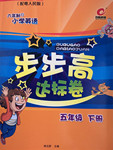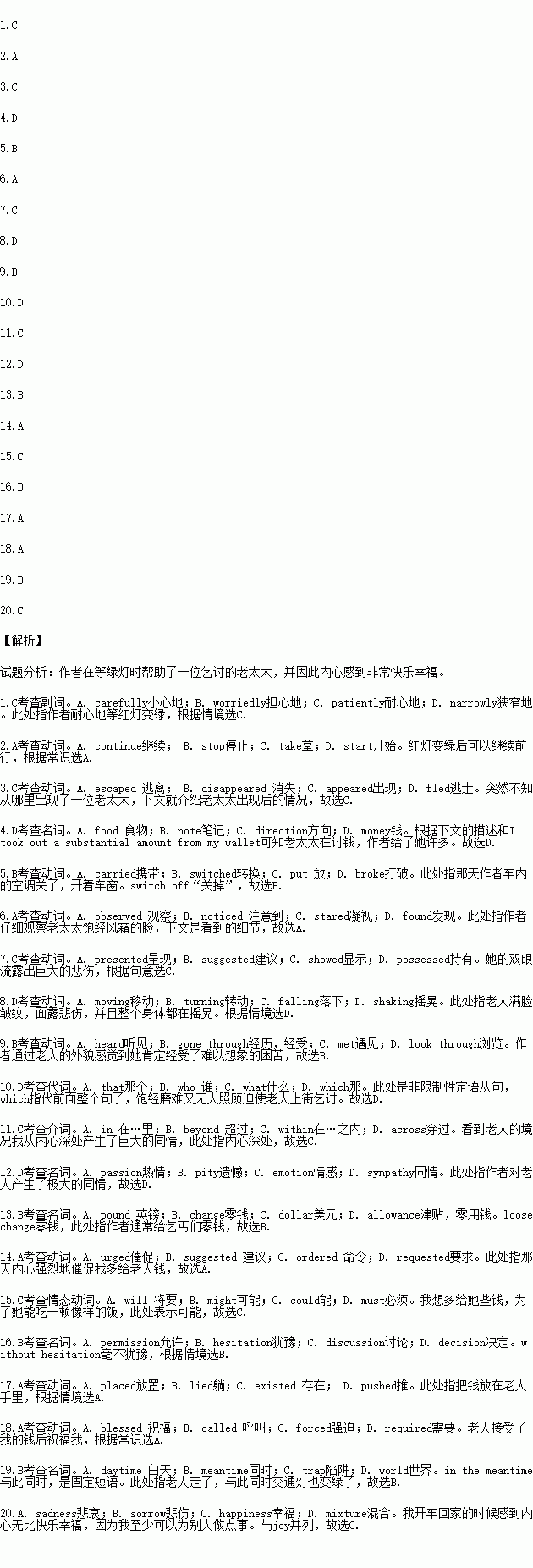题目内容
One afternoon,as I was driving back home, I stopped at a busy intersection as the traffic light turned red. I waited ____ for the light to turn green,so that I could ____ my journey.
Suddenly, out of nowhere, an old woman ____ and started asking for ___. That day, I had unknowingly ____ off the air conditioner in the car and my window was down. The old woman was standing very close to my car. As she begged for alms(施舍物), I closely ____ her weather-beaten face, which had lots of wrinkles on it. Her eyes ____ lots of sadness and her whole body was ____. I sensed that this elderly lady had ____ some incredibly hard times in her life and at this time there was no one to look after her, ____ forced her to beg on the streets.
Seeing her condition, I immediately felt from ____ my being a huge surge (汹涌)of ____ for her. It was coming deep from within my heart. I normally gave loose ____ to beggars, however, that day my inner self strongly ____ me that I give her something substantial(大量的)so that she ____ have a decent meal.
Without any ____ I took out a substantial amount from my wallet and ____ it in her hand. Her weather-beaten face lit up with a toothless smile and she ____ me and went on her way. In the ____ the traffic light had turned green, and it was time to move on.
As I drove back home I felt within myself a sense of joy and ____ surging through me because I was able to do something for at least one person on this planet.
1.A. carefully B. worriedly C. patiently D. narrowly
2.A. continue B. stop C. take D. start
3.A. escaped B. disappeared C. appeared D. fled
4.A. food B. note C. direction D. money
5.A. carried B. switched C. put D. broke
6.A. observed B. noticed C. stared D. found
7.A. presented B. suggested C. showed D. possessed
8.A. moving B. turning C. falling D. shaking
9.A. heard B. gone through C. met D. look through
10.A. that B. who C. what D. which[
11.A. in B. beyond C. within D. across
12.A. passion B. pity C. emotion D. sympathy
13.A. pound B. change C. dollar D. allowance
14.A. urged B. suggested C. ordered D. requested
15.A. will B. might C. could D. must
16.A. permission B. hesitation C. discussion D. decision
17.A. placed B. lied C. existed D. pushed
18.A. blessed B. called C. forced D. required
19.A. daytime B. meantime C. trap D. world
20.A. sadness B. sorrow C. happiness D. mixture
 步步高达标卷系列答案
步步高达标卷系列答案
